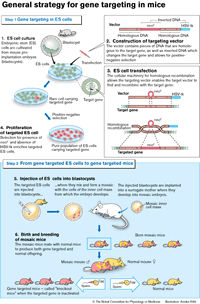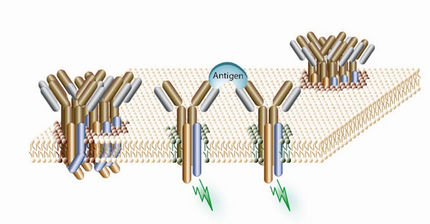New Mechanism for Cardiac Arrhythmia discovered
Advertisement
It has long been thought that virus infections can cause cardiac arrhythmia. But why has not been understood. Ulrike Lisewski, Dr. Yu Shi, Michael Radke and Professor Michael Gotthardt of the Max Delbrück Center for Molecular medicine (MDC) Berlin-Buch, Germany, have now discovered the molecular mechanism. The researchers demonstrated that the receptor which the virus uses to infect heart cells is normally necessary for regular heart beat in mice. Likewise, when the receptor is absent or non-functioning, arrhythmia occurs. They assume that both the virus infection and the autoimmune disease can block the receptor which, in turn, disrupts the heart’s normal rhythm. The study has now been published online in the Journal of Experimental Medicine.
The heart consists of two ventricles and two atria. In order to beat correctly and to pump blood through the body, specialized heart fibres generate electric signals that control the heart beat. Cardiac arrhythmia occurs when these signals are not correctly generated or forwarded. There, a receptor, which scientists call CAR, plays an important role.
CAR stands for Coxsackievirus-Adenovirus-Receptor. It is embedded in specific cell-cell-contacts (tight junctions) of the specialized heart fibres. CAR was discovered as the critical protein responsible for virus entry during infection with Coxsackie and Adenoviruses. Its role in the adult heart was previously unknown.
To investigate CAR’s task in a healthy organism, the MDC-scientists switched off the CAR-gene in adult mice. As a result, the rodents could no longer produce the receptors and developed cardiac arrhythmia. “That is an interesting observation because these special cell-cell-contacts, the tight junctions, have not been connected to arrhythmia so far”, Professor Gotthardt says.
A detailed analysis of the animals showed that the transfer of electric signals from the atria to the
ventricles does not work properly. “When CAR is missing, the signal can not be passed on and the heart does not beat properly,” Dr. Shi says.
Professor Gotthardt now wants to investigate whether CAR is blocked in patients with arrhythmia. “However, it does not always have to be connected to a virus infection,” he says. “The body’s own antibodies directed against CAR could cause the disease as well.”
The tight junction protein CAR regulates cardiac conduction and cell-cell communication
Original publication: Ulrike Lisewski1, Yu Shi1, Uta Wrackmeyer1, Robert Fischer2, Chen Chen1, Alexander Schirdewan2, Rene Jüttner3, Fritz Rathjen3, Wolfgang Poller4, Michael H. Radke1 and Michael Gotthardt1,5
1Neuromuscular and Cardiovascular Cell Biology, Max-Delbrück-Center for Molecular Medicine (MDC), 13122 Berlin-Buch, Germany, 2 HELIOS Kliniken GmbH, Franz-Volhard Klinik, Charité, Humboldt-University, 13125 Berlin, Germany, 3Department of Molecular Pathology, University Hospital Tübingen, D-72073 Tuebingen, Germany, 4 Department of Cardiology, Campus Benjamin Franklin, D-12200 Berlin, Germany, 5Department of Veterinary and Comparative Anatomy, Pharmacology, and Physiology, Washington State University, Pullman, Washington, 99164 USA.
Other news from the department science
Most read news
More news from our other portals
See the theme worlds for related content
Topic world Antibodies
Antibodies are specialized molecules of our immune system that can specifically recognize and neutralize pathogens or foreign substances. Antibody research in biotech and pharma has recognized this natural defense potential and is working intensively to make it therapeutically useful. From monoclonal antibodies used against cancer or autoimmune diseases to antibody-drug conjugates that specifically transport drugs to disease cells - the possibilities are enormous

Topic world Antibodies
Antibodies are specialized molecules of our immune system that can specifically recognize and neutralize pathogens or foreign substances. Antibody research in biotech and pharma has recognized this natural defense potential and is working intensively to make it therapeutically useful. From monoclonal antibodies used against cancer or autoimmune diseases to antibody-drug conjugates that specifically transport drugs to disease cells - the possibilities are enormous























































